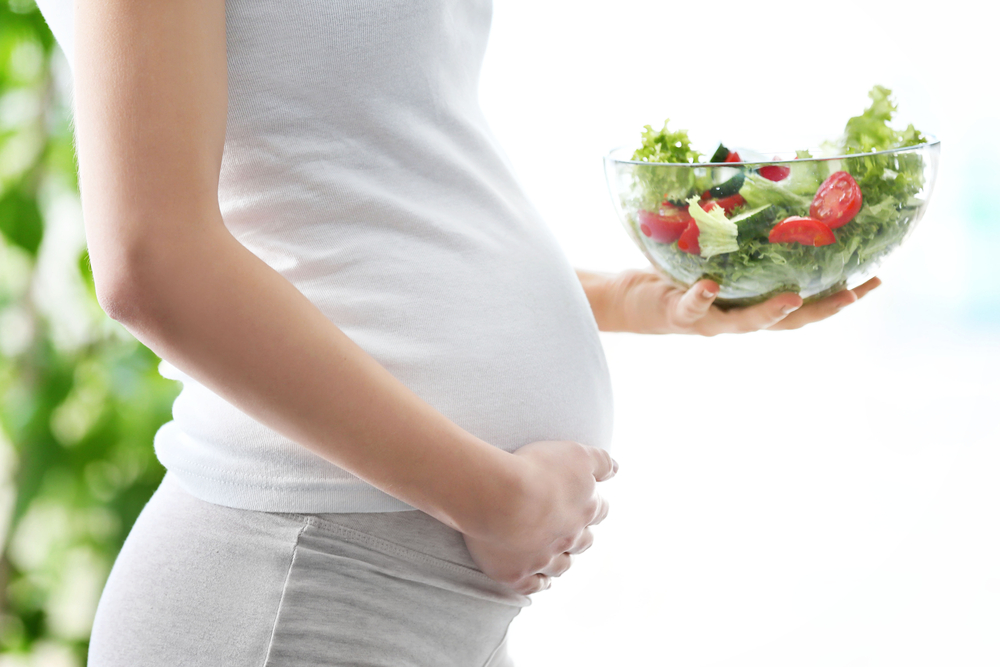Ramadan is the month of blessing and Muslims around the world fast to fulfil their religious duties. Fasting is known to be good for many reasons. However, when it comes to fasting during pregnancy, there is a lot of confusion.
Should women be fasting during pregnancy? Does fasting affect your baby’s health? Is it advisable or not? And so on…
Let’s talk about some of the common questions about fasting in pregnancy and see how to do it right!
Table of Contents
Fasting in Pregnancy – What Islam Has to Say?
Fasting (روزہ) being the third pillar of Islam is the practice of abstaining from eating, drinking from dawn to dusk.
According to Islamic law, it is allowed for pregnant women and breastfeeding mothers to skip fasting. You can keep giving fidya instead or can fast later. However, for women who are in good physical condition and think they can fast without affecting the health of their unborn child, it is permissible to fast.
Read more about the benefits of fasting for your health.
Can Pregnant Women Fast?
Now comes the question of whether it is too safe to fast while you are expecting a child?
There are multiple opinions regarding it.
Fasting reduces the risk of gestational diabetes in pregnant women. Other than this, pregnancy fasting is less likely to pose any significant impact on a baby’s health.
According to research, fasting has no significant impact on a baby’s health. It causes no changes in birth rate, body weight, height and head circumference of newborn babies. However, in women who are fasting in the first trimester, there is a 1.5 times increased chance of low birth weight.
So, fasting during pregnancy is considered safe if pregnant mothers take good care of their health!
Tips for Pregnant Women for Fasting Safely in Ramadan
If you have decided on pregnancy fasting, you can find yourself struggling to find the best ways to fast without compromising your health.
Here are the best tips that can help you to fast safely while being pregnant.
1- Never Skip Suhoor
Suhoor or pre-fast meal is what you begin your day with.
Many people don’t feel like eating anything this early or may prefer to sleep. But if you want to fast in pregnancy without compromising your baby’s health, be mindful that suhoor is a must.
Eat well in suhoor so you don’t feel exhausted throughout the day. It will also prevent the weakness that could result in pregnancy troubles in future.
2- Choose Good Foods
Eating in Suhoor isn’t enough!
Just like having your pre-dawn meal, what you eat also matters. For pregnant females, fulfilling your baby’s nutritional requirements can be a difficult thing and that’s where the right food choices matter. This goes for both suhoor and iftar.
Make sure to choose the right kind of food. If you are looking to make healthy food choices, here are the tips that might help you:
- Be carb-wise, choose complex carbs that will keep you going for longer periods
- Avoid the consumption of sugary foods and drinks
- Add healthy fats to your diet
- To fulfil your protein requirement, lean meat and pulses are considered a better option.
- Avoid oily and fried foods that could lead to indigestion
- Add raw fruits and vegetables to your diet.
3- Focus on Hydration
Hydration is important when you are fasting and becomes even more important when you are fasting during pregnancy.
To fulfil the fluid requirements of your baby, make sure to keep yourself hydrated. Not getting enough water can result in a low volume of amniotic fluid. Here is what you can do to keep yourself hydrated while fasting:
- Drink a lot of water during the non-fasting period
- Pick fruits and vegetables having a high water content
- Avoid adding too much salt to your diet.
Read more about how to stay hydrated in Ramadan.
4- Ditch Caffeine
Too much caffeine is bad for the baby, no matter if you are fasting or not.
When you are fasting during pregnancy, this caffeine can make you feel dehydrated. Other than this, caffeine can also interfere with your blood pressure and affect your digestive health as well. So, if you want to spend your days in restlessness, make sure to drink a very little amount of caffeine.
5- Monitor your Activity Level
Too much work while you are fasting can make you feel fatigued throughout the day.
For this, try to effectively plan your day.
- Get help with the house chores
- Be wise while planning your meals
- Conserve your energy for the day ahead
- Take breaks often
- Minimize the outdoor exposures.
In all these, you can help yourself to fast safely in pregnancy.
6- Keep an Eye on Warning Signs
I am sure now you have got your answer on can pregnant women fast!
However, when you are fasting in Ramadan, keep an eye on warning signs. Here are the signs to watch for:
- Abnormal bleeding
- Fatigue or weakness
- Cramping
- Unintended weight loss
Fasting in Pregnancy – Let’s Wrap Up!
Pregnancy fasting is solely a matter of personal choice!
The decision can be made by taking into account the following:
- Your current pregnancy stage
- Physical health before pregnancy
- Fasting duration and weather conditions
However, fasting can be harmful if you suffer from any pregnancy complications or not having good physical health. Make sure to take good care of your health and keep an eye on the warning signs. In case you witness any changes in your health, make sure to consult your gynecologist. You can now consult the best gynecologists in Karachi via Healthwire.pk to make wise decisions regarding your health in pregnancy.
